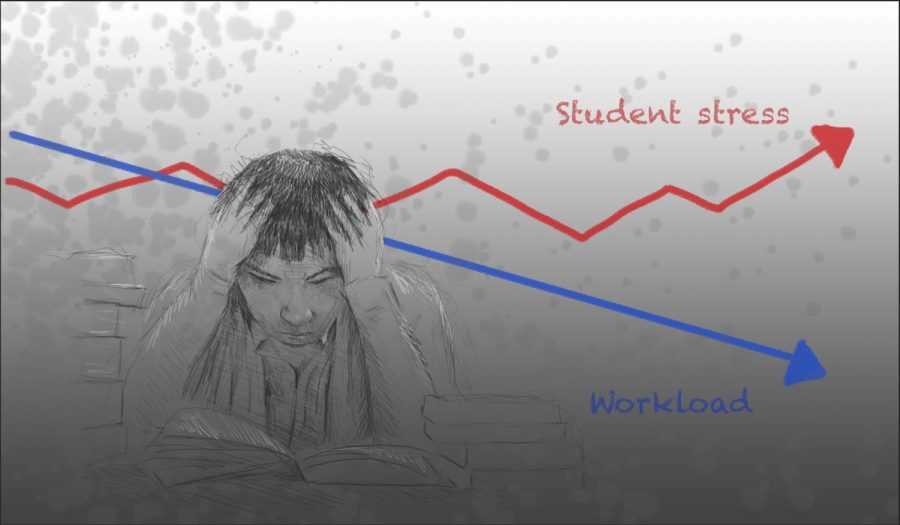Mental health, rigor stand at crossroads
The U-High editorial board argues that Lab cannot keep its label of an academically rigorous institution while adequately dealing with a demand for increased mental health support.
April 3, 2023
In the 2022-23 Laboratory Schools Report on Wellness, given to students in grades 6-12, experts from Authentic Connections suggest teachers should maintain high expectations but make it clear that academic and extracurricular success should never come at the expense of student well-being. This is unfortunately a contradiction when it comes to Lab.
Lab cannot thoroughly deal with a demand for increased mental health support while simultaneously keeping the label of an academically rigorous institution. When students enroll at Lab, they expect that they will develop the skills needed to excel academically and find success in the college process.
Lab students should not expect a smaller workload as part of the school’s mental health response but should instead advocate for more consistent coordination among faculty on the assignment of work.
Lab’s 2019 strategic framework identified workload as the root cause of many students’ stress and mental health struggles, citing responses on the health and wellness surveys given to students.
Despite having new external facilitators and survey questions in the 2022-23 school year, the overall trends of the survey results remained mostly the same. When given the opportunity to offer areas of improvement for faculty, students most frequently mentioned reducing workload as a way to address the issues they face.
When enrolling at Lab, students and their families are signing themselves up for the Lab workload and culture.
An individual student’s workload is not entirely dictated by their teachers. Students who choose more difficult classes should expect a heavier workload, and the responsibility of managing time outside of school should go to students. Lab’s culture of competition can even lead to students bragging about the many hours they spend studying and the few hours they spend sleeping. This culture has also caused students to hesitate when reaching out to their teachers when they feel overwhelmed.
The change students should be looking for is in the systems for assigning work, and positive change has been made in that area. In the past two years changes have included restrictions on assigning homework during weekends and after breaks. However, there are still improvements that can be made.
Another Authentic Connections suggestion was to coordinate the volume and scheduling of assignments across the faculty and program of studies in each division, to ensure a manageable weekly workload. This would require departments to ensure that tests and major projects are somewhat spaced out.
Promoting student voice and advocacy is another way to promote a balanced workload rather than a lighter one. If students have a way to enforce the rules and boundaries on how assignments are given, a lot of stress could be reduced.
Lab’s demanding academics are a fundamental part of the school. If students expect the results that the school promises, then it is more important to advocate for a fair and balanced system of assignments rather than a reduced workload.




























































